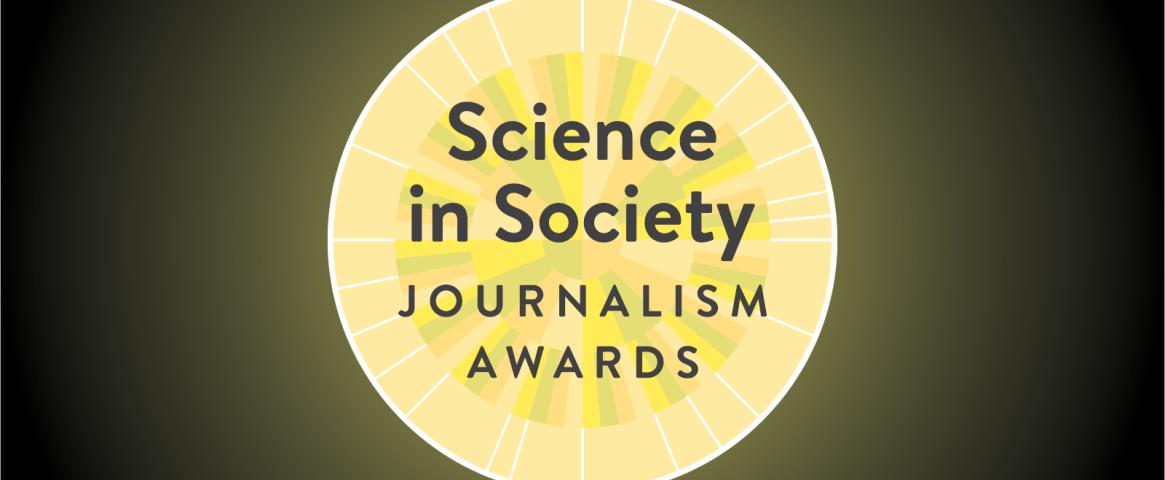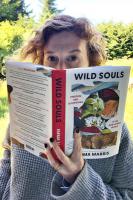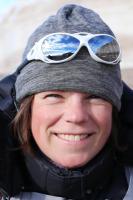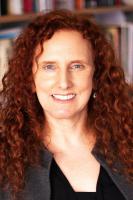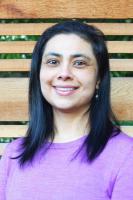The National Association of Science Writers and its Awards Committee are pleased to announce the winners of the 2022 Science in Society Journalism Awards (SIS). This year, NASW is awarding prizes in six categories: Books, Science Reporting, Science Features, Longform Narratives, Series, and Commentary:
-
In the Books category, Wild Souls by Emma Marris, published by Bloomsbury Publishing.
-
In the Science Reporting category, “How Heat Waves Warp Ecosystems” by Julia Rosen, published by High Country News.
-
In the Science Features category, “Brazil Shows You Can Harvest Sugar Cane Without Polluting the Air: What Florida's Sugar Farmers Can Learn About Burning Cane” by Nadia Sussman (reporting and production, cinematography), Joseph Singer (video editing), Mauricio Rodríguez Pons (graphics and animation), Letícia Klein (additional reporting, production assistance), with Lulu Ramadan (additional reporting) and Kevina Tidwell (archival producer), and executive producer Almudena Toral and series editor Michael Mishak, co-produced by WGCU and ProPublica.
-
In the Longform Narratives category, “The Pain Was Unbearable, So Why Did Doctors Turn Her Away?” by Maia Szalavitz, published by WIRED.
-
In the Series category, “Unsalvageable: Preventable Amputations Rise During COVID” by Eli Cahan, published by WebMD/Medscape.
-
In the Commentary category, “Why are Police Using a World War I-Era Chemical Weapon on Civilians?” by Jennifer L. Brown, Roman Tyshynsky, Timothy Monko, Carlee Toddes, and Carey Lyons, published by Scientific American.
The SIS award winner in each category will receive a cash prize of $2,000. The 2022 NASW Awards will be presented on Saturday, Oct. 22 in Memphis, Tenn. as part of the ScienceWriters2022 national conference. Follow hashtags #SciWri22 and #SciWriAwards on social media for ongoing awardee celebrations.
Praise for the 2022 SIS Books Category Winner: Published by Bloomsbury in June 2021, Wild Souls is an exploration of “wildness” as it relates to the goals of animal welfare and conservation science. Emma Marris transports readers into the field, where scientists grapple with myriad questions about wildness: Can hunting be ecological? When is it right to feed a wild animal?“Marris artfully addresses the many moral quandaries we’ll face as we continue to remake the planet we live on,” the judges said. “In an era of environmental violence, it’s tempting to yearn for pristine wilderness. But Wild Souls challenges readers to think deeply about what we mean when we say ‘nature’ or ‘wilderness’ in a world that has been shaped by humans.” The judges called Wild Souls “a thoughtful and sensitive guide through difficult scientific and historical terrain,” commending Marris for laying out a framework for thinking about our ethical obligations to other species within this philosophically rich space.
Praise for the 2022 SIS Science Reporting Category Winner: Published in High Country News on November 22, 2021, “How Heat Waves Warp Ecosystems” delves into the ecological aftermath of the heat dome — searing temperatures well above 100°F — that had then enveloped the Pacific Northwest.The judges found Julia Rosen’s reporting to be incisive.
“It was eye-opening to learn that even a few days of brutal heat can transform an ecosystem for years," they remarked. "As climate change makes intense heat ever more common... the potential ecological ruin of the Pacific Northwest coastline offers a foreboding tale of what's to come as the planet heats up.”
Praise for the 2022 SIS Science Features Category Winner: Co-produced and aired by WGCU and ProPublica on December 29, 2021, “Brazil Shows You Can Harvest Sugar Cane Without Polluting the Air” offers a scathing contrast of sugar cane farming practices in Brazil and Florida.“The powerful video investigation reveals the hypocrisy of Florida’s sugar cane producers, while moving beyond a mere exposé,” the judges said. They lauded the compelling combination of archival footage, graphics, and interviews with people from impacted communities, adding that the “refreshing and effective journalistic approach calls attention to the false dichotomy of pitting economic needs against environmental responsibility.”
Praise for the 2022 SIS Longform Narratives Category Winner: Published in WIRED on August 11, 2021, “The Pain Was Unbearable, So Why Did Doctors Turn Her Away?” tells the stranger-than-fiction investigation of an algorithm widely used in healthcare to calculate drug addiction risk.“This story will have you reading with your eyes bulging wide,” the judges said. “Maia Szalavitz powerfully captures the intersections of gender, pain, and surveillance while showing that denial of medical care could very well happen to anyone without their knowledge.” The judges noted that at a time when coverage of pain medication has focused on doctor-shopping, “this story exposes the dangers of doctors and pharmacists relying on a secretive, for-profit algorithm to make life-altering decisions about who does or doesn’t get medical treatment.”
Praise for the 2022 SIS Series Category Winner: Published in WebMD/Medscape in October 2021, “Unsalvageable: Preventable Amputations Rise During COVID” examines a devastating consequence of delayed medical care during the COVID-19 pandemic: amputations. Black and Brown Americans lost their limbs at a much higher rate than did white Americans.The judges lauded Eli Cahan’s deft deployment of data and vivid on-the-ground reporting. They stated: “This tour-de-force highlighted the intersections of disabilities, COVID-19, and medical decision-making — while also adding a strong sense of humanity with the voices of underrepresented people who were most impacted by the unintended consequences of lockdown.”
Praise for the 2022 SIS Commentary Category Winner: Published in Scientific American on April 20, 2021, “Why are Police Using a World War I Era Chemical Weapon on Civilians?” underscores how little we know about the long-term health and environmental effects of tear gas, a chemical weapon with virtually no regulatory oversight.Praising the authors’ expert scientific and historical analysis, the judges were particularly struck by the revelation of how “appeals to white supremacy resulted in a World War I era chemical weapon being marketed to police forces to ‘humanely’ quash civil unrest — from the 1960s civil rights movement to the 2020 racial protests.” They further stated: “It is rare to find a piece of commentary that sheds new light on an ubiquitous chemical compound, making you see the world in a new way.”
In addition to the 2022 SIS winners, the judges would like to recognize entries that were finalists in the competition:
Finalists in the Books category:
- The End of Bias, A Beginning: The Science and Practice of Overcoming Unconscious Bias by Jessica Nordell, published by Metropolitan Books.
- Pipe Dreams: The Urgent Global Quest to Transform the Toilet by Chelsea Wald, published by Avid Reader Press/Simon & Schuster.
Finalists in the Science Reporting category:
- “Anthropologists Grapple With Identifying Remains by Race” by Lizzie Wade, published by Science.
- “What Do Police Know About Teenagers? Not Enough” by Meryl Davids Landau, published by The New York Times.
Finalists in the Science Features category:
- “The Ghosts in the Museum” by Lizzie Wade, published by Science.
- “Remembering Zika: Parents Offered Their Kids for Studies, Then Say They Were Forgotten” by Mariana Lenharo, published by Undark.
Finalists in the Longform Narratives category:
- “Cold War, Hot Mess” by Lois Parshley, published by The Virginia Quarterly Review.
- “Plantation Ecology” by Ari Daniel, Caitlin Pierce, Allison Wilson, Sam Johnson, Conor Gearin, Rob Byers, Michael Raphael, and Johnny Vince Evans, produced by BirdNote’s Threatened podcast.
Finalists in the Series category:
- “Body Language” by Aneeta Akhurst, Brian Pendergast, Maren Hunsberger, Semany Gashaw, Lizzie Philip, Lauren Iverson, Lee Mould, Matt Morales, Lily Padula, Tia Mayer, Chris Tarampi, Kalyani Lodhia, Spencer Snider, and Sally Gu, produced by Seeker.
- “A Mostly Unregulated Stem Cell Industry is Thriving in Arizona” by Amanda Morris, Alex Li, and Nicole Schaub, published by The Arizona Republic.
Finalists in the Commentary category:
- “Black Blood Donors Are Desperately Needed, So I Donated for the First Time” by Lindsey Leake, published by TCPalm/Treasure Coast Newspapers.
- “The Year of Choosing Dangerously” by Maggie Koerth, published by FiveThirtyEight.
In addition to the final judging committee, NASW thanks the volunteers who served on the SIS preliminary judging committees: Pakinam Amer (freelance), Ted Anton (DePaul University), Steven Ashley (freelance), Meghan Bartels (Space.com), Monique Brouillette (freelance), Viviane Callier (freelance), Kimberly Cauvel (Skagit Valley Herald/freelance), Rachel Courtland (MIT Technology Review), Laura de Francesco (Nature), Alla Katsnelson (freelance), Marina Koren (The Atlantic), Jena Pincott (freelance), Heather Smith (Sierra Magazine), Megan Thielking (STAT), Paul Tullis (freelance), Alexandra Witze (freelance), Lauren Wolf (Nature).
First awarded in 1972, the NASW Science and Society Journalism Awards were established to recognize investigative or interpretive reporting about the sciences and their impact on society. Intended to encourage critical, probing work that would not receive an award from an interest group, NASW presents these journalism awards without subsidy from any professional or commercial interest. The annual SIS honors have highlighted innovative reporting shaped by a diverse variety of perspectives — going well beyond the research findings and considering the associated ethical problems and social effects. The awards are especially prestigious because they are judged by accomplished peers.
Entries for the next awards cycle, recognizing material published or broadcast in 2022, are due February 1, 2023. Nomination forms will be available at www.nasw.org/awards/sis beginning December 2022.
All NASW awards strive to showcase timely coverage and exemplary work, particularly those by underrepresented creatives tackling diverse, overlooked issues and communities. Judges especially consider diversity in topics, sources, audience, and authors to be a critical component of excellence. Nominations are not limited to the NASW membership, and media professionals are encouraged to submit entries on behalf of peers, colleagues, and mentees.
Photos courtesy of awardees. Image credits: Yasha Rhower, Julia Rosen, Nadia Sussman, Letícia Klein, Kevina Tidwell, Ash Fox, Eli Cahan, Jennifer L. Brown, Timothy Monko, Carey Lyons
Founded in 1934 with a mission to fight for the free flow of science news, the National Association of Science Writers is an organization of 2,700-plus professional journalists, authors, editors, producers, public information officers, students and people who write and produce material intended to inform the public about science, health, engineering, and technology. To learn more, visit www.nasw.org or follow on Twitter @ScienceWriters and on LinkedIn.
